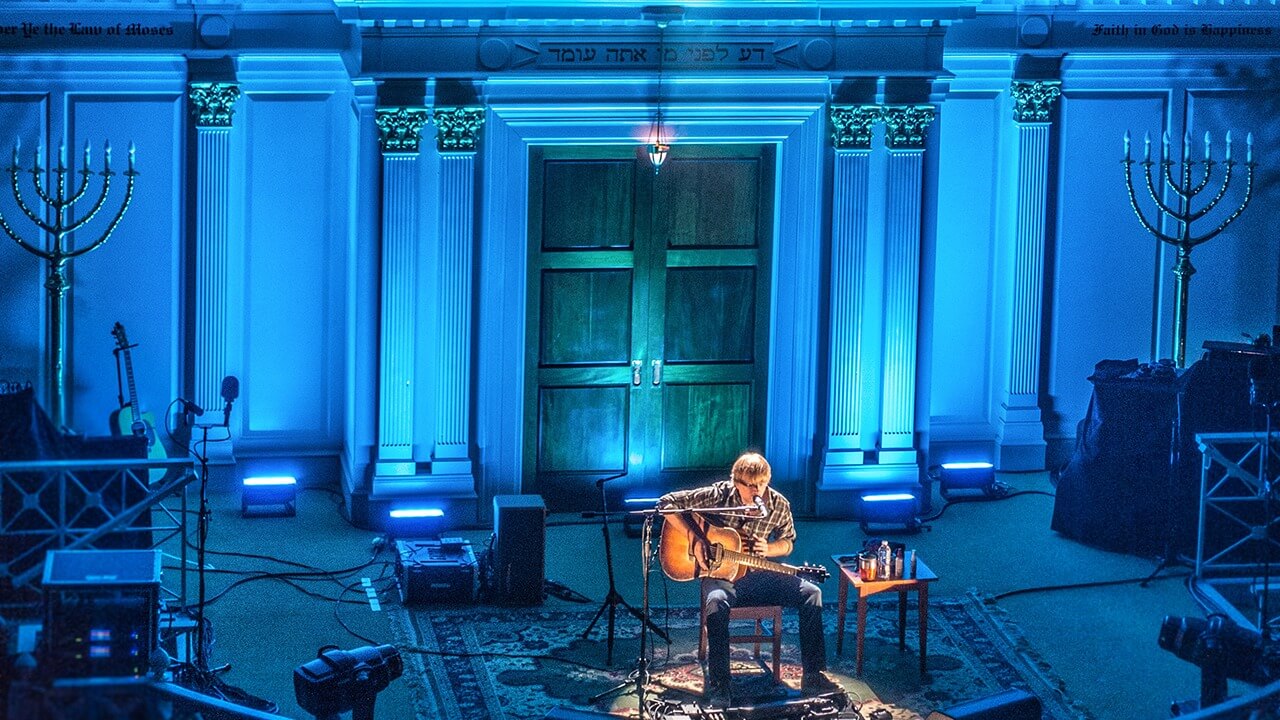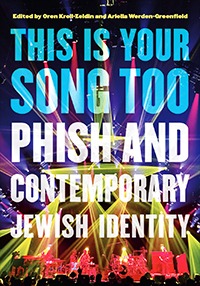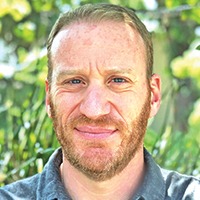Jewish Phish fans swim in their own holy waters
For many Jewish Phish fans, concerts are a joyful space to connect with other Jews, celebrate tradition — and even catch a signature High Holidays prayer.

Graphic by Angelie Zaslavsky
This article originally appeared on J. The Jewish News of Northern California, and was reprinted here with permission.
Every so often, Phish will play “Avinu Malkeinu” at one of their concerts. Sometimes it’s months between the band’s renditions. Sometimes it’s years.
“Avinu Malkeinu” is a classic Jewish prayer that is chanted with a hauntingly beautiful melody. Its somber words express submission, service and dedication to God. When Phish plays the prayer, the rock band’s members honor the composition’s traditional melody and message while reshaping it with funky rhythms in an arena rock concert.
Hearing Phish play “Avinu Malkeinu” is exciting for most Phish fans due to its rarity. But the experience can carry special significance for Jewish fans as a Phish venue momentarily transforms into a synagogue, a sanctuary filled with collective, joyous prayer. Many Jewish Phish fans, myself included, describe hearing Phish play the prayer as a powerful and meaningful Jewish experience.
Beyond their performance of Jewish songs, there are numerous elements of the musical, communal and sometimes transcendental world of Phish that can be interpreted through a Jewish framework. Two members of the band, bassist Mike Gordon and drummer Jon Fishman, were raised in Jewish households.
Furthermore, the deeply dedicated Phish fan community will observe Jewish practices or display their Jewish identities at Phish concerts and beyond. For example, at some shows observant Jews gather for a minyan to pray during the set break. Others wear shirts with “Phish” written in Hebrew script. Although most Jewish fans do neither of those things, Phish has nonetheless amassed a considerable Jewish following during its 40-year career as a constantly touring band with a dedicated fan base a la the Grateful Dead. For some Jewish fans of the band, going to Phish shows is actually part and parcel of what it means to be an American Jew.

As a devoted Phish fan and scholar of Jewish identity, I co-edited an upcoming academic volume with my colleague Ariella Werden-Greenfield called “This Is Your Song Too: Phish and Contemporary Jewish Identity” that asks what we initially thought was a straightforward question: What is the connection between Phish and Jewish identity?
The answer is not so simple, as a complex mosaic of religious and cultural ties link the band’s music and fan community with Jewishness. As evidenced by the chapters in the book, Phish shows are alternate sites of Jewish cultural and spiritual connection. Phish is one of many avenues through which Jews find fulfillment outside the confines of traditional, institutional Jewish life.
Put simply, in and through Phish, a multitude of Jews are creating innovative rituals, building community and engaging with and producing Jewish culture.
For much of the 20th century, American Jewish life centered around institutions, including synagogues, federations and community centers. Today, however, American Jews also choose alternative Jewish spaces and seek new, meaningful and joyful points of Jewish connection.
Many younger adults want to connect to their Jewish past, to Jewish community and even to Jewish religious belief in ways that feel relevant within their contemporary lives. They may embrace pickling or bake challah and post pictures on Instagram. They might meet weekly with their Jewish improv troupe or monthly with their women’s circle. Or perhaps they join up with Jewish friends to see their favorite band perform live.
At first glance, some of these activities might seem devoid of Jewish significance, but for those engrossed in them, they represent ways of engaging with their Jewish identity in deep and meaningful ways that even make them ripe for scholarly analysis.
Younger generations of American Jews are connecting Jewishly in unexpected ways and in unexpected places. For many Jewish Phish fans, the band’s music and the surrounding scene serve as a joyful space within which to connect with other Jews, celebrate tradition and even engage in behaviors typically associated with synagogues.
Phish concerts and the Phish fan scene offer opportunities for Jewish connection for those who seek it out while also functioning as a comfortable space for unaffiliated and self-identified secular Jews. When Jewish fans listen to Phish play “Avinu Malkeinu” and then discuss their feelings about the rendition outside the concert setting, they reshape Jewish practice and identity. So, too, do the Jewish members of Phish when they play the prayer at one of their concerts.
When Jewish Phish fans have Jewish experiences at Phish shows, they are urging us to reconsider how we understand contemporary American Jewish identities.
















